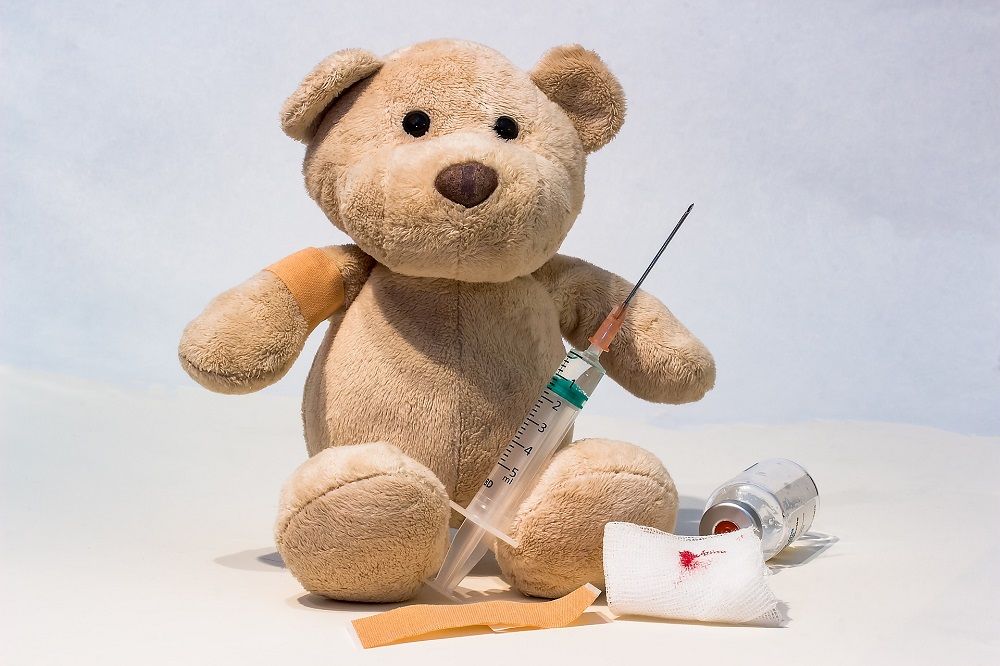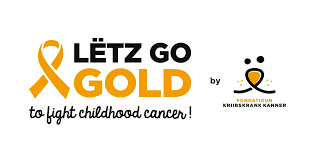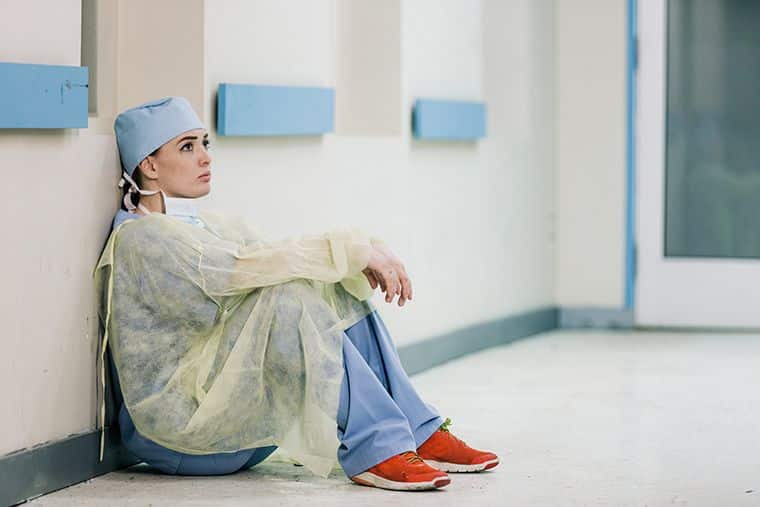In Luxembourg and elsewhere, vaccination does not always have a good reputation among the general public. Undesirable effects, dangerousness, the harmful presence of aluminum... The subject is a hot topic of debate. The Covid-19 crisis was a case in point, with both pro-vaccine and anti-vaxers taking sides.
What do Luxembourg regulations say about vaccination? Is vaccination compulsory? Which vaccines are recommended? What are the requirements before traveling abroad?
The positive effects of vaccination on disease prevention are undeniable. Vaccines protect the population from dangerous diseases.
We tell you all about vaccination in the Grand Duchy of Luxembourg.
Free vaccination against Covid-19
During the coronavirus pandemic, Luxembourg was quick to vaccinate its population against Covid-19. Today, vaccination is still recommended for vulnerable people.
Vaccination is carried out on the basis of a letter sent to people at risk, inviting them to be vaccinated. However, it is possible to be vaccinated without waiting for the letter.
You can get vaccinated with an appointment at the following locations:
The health pass is no longer required in Luxembourg.
Find out more about current legislation concerning Covid vaccination in Luxembourg.
Do you have Covid symptoms? You can self-test with tests available in pharmacies .Consult this page for information on Covid legislation in Luxembourg.
Vaccination and regulations in Luxembourg
In Luxembourg, vaccinations are not compulsory. However, public health authorities recommend following the national vaccination schedule.
Indeed, while vaccination is an individual right, it is also a collective responsibility. The authorities recommend that children be vaccinated. Adults are also encouraged to take various vaccinations. These include vaccines against polio, tetanus, whooping cough and diphtheria.
The general practitioner carries out all vaccinations. Contact the practice for an appointment.
The Luxembourg government covers the cost of vaccinating infants and children with the vaccines listed in the vaccination calendar.
Vaccination recommendations in Luxembourg
Although there are no regulations on the subject, it is strongly recommended that children be vaccinated. By vaccinating them, parents protect their children against dangerous, even fatal, diseases.
Adults are also advised to get vaccinated against certain diseases.
You can check online whether you are up to date with the recommended vaccinations.
Vaccination calendar in Luxembourg
As soon as the first vaccination is given, the patient receives a vaccination booklet. This enables them to keep track of injections received from an early age, and to check their vaccine protection. The booklet shows the name of the vaccine, the date of injection, the batch number and, usually, the date of the next booster dose.
The Luxembourg health authorities have drawn up a vaccination calendar. This gives vaccination recommendations for infants and children, teenagers and adults.
Recommended vaccines for children in Luxembourg
| Infants, children, teenagers | |||
| Age | Dose | Vaccine | Protection |
| 2 months | 1 | Combination vaccine (D, T, aP, Hib, IPV, Hep B) | Diphtheria, tetanus, pertussis, invasive Haemophilus influenzae type b infections, poliomyelitis, hepatitis B |
| 1 | Rotavirus | Rotavirus gastroenteritis | |
| 1 | Pneumococcus | Invasive pneumococcal infections | |
| 3 months | 2 | Combination vaccine (D, T, aP, Hib, IPV, Hep B) | Diphtheria, tetanus, pertussis, invasive Haemophilus influenzae type b infections, poliomyelitis, hepatitis B |
| 2 | Rotavirus | Rotavirus gastroenteritis | |
| 4 months | 3 | Combination vaccine (D, T, aP, Hib, IPV) | Diphtheria, tetanus, pertussis, invasive Haemophilus influenzae type b infections, poliomyelitis |
| 2 | Pneumococcus | Invasive pneumococcal infections | |
| 12 months | 1 | Combination vaccine (MMRV) | Mumps, rubella, measles, chickenpox |
| 3 | Pneumococcus | Invasive pneumococcal infections | |
| 13 months | 4 | Combination vaccine (D, T, aP, Hib, IPV, Hep B) | Diphtheria, tetanus, whooping cough, poliomyelitis, invasive Haemophilus influenzae type b infections, hepatitis B |
| 1 | Meningococcus C | Invasive Meningococcal C (MenC) infections | |
| 15-23 months | 2 | Combination vaccine (MMRV) | Mumps, rubella, measles, chickenpox |
| Within 5 years (if not already done) | 1 | Pneumococcus | Invasive pneumococcal infections |
| 5-6 years | Reminder | Combination vaccine (d, T, aP, IPV) | Diphtheria, tetanus, whooping cough, poliomyelitis |
| 12 years old (if not yet done) | 1 | Hepatitis B | Hepatitis B |
| 11-13 years (girls) | 1 | HPV | Papillomarivus (HPV) infections |
| 15-16 years | Reminder | Combination vaccine (d, T, aP, IPV +MenC) | Diphtheria, tetanus, whooping cough, poliomyelitis |
| 15-16 years (girls if not yet done) | 1 | HPV | Papillomavirus (HPV) infections |
Recommended vaccines for adults in Luxembourg
| Adults and seniors | ||
| Age | Vaccine | Protection |
| Every 10 years | Combination vaccine (d, T, aP, IPV) | Diphtheria, tetanus, whooping cough, poliomyelitis |
| Born after 1980 and not having received two doses of measles, mumps and rubella vaccine | MMR vaccine | Measles, mumps, rubella |
| 65 and over | Pneumococcus | Invasive pneumococcal infections |
| 65 and over | Flu | Seasonal flu |
Other vaccinations may be recommended for children at risk (blood diseases, chronic lung diseases, etc.).
Coverage of vaccination costs
The Luxembourg government covers the cost of vaccinating infants and children, in accordance with the vaccination calendar. Vaccination is also provided for certain at-risk populations.
The CNS reimburses seasonal flu vaccinations for people who meet the conditions. Contact your GP directly to find out more about who is eligible for reimbursement of the flu vaccine.
The CNS also reimburses the cost of the bivalent vaccine (Cervarix®) for girls and boys aged between 9 and 14 inclusive.
Find out more about medical care reimbursements.
When should you get vaccinated when traveling abroad?
Before traveling abroad, it may be necessary to undergo specific and additional vaccinations. Vaccinations are recommended depending on the country you are visiting.
International vaccination requirements
Some countries require SARS-Cov2 vaccination against Covid. This is a prerequisite for obtaining a visa. Proof must be provided to obtain the necessary papers for entry into the country, including in the case of correspondence.
Yellow fever is the only disease for which countries can require proof of vaccination. Vaccination may be required on entry, in accordance with the 2005 International Health Regulations. Some countries in Africa, Central America and South America require systematic vaccination. This is the case in Burundi, Cameroon, Congo, Gabon and Mali. Other countries require it, depending on the country of origin.
The aim of vaccination is to prevent importation and international spread of the virus. It also protects travelers who may be exposed to the infection.
Who should be vaccinated before travelling?
Some vaccinations are mandatory before entering the country. So be sure to check the requirements before you travel.
As a general rule, all travellers must be vaccinated in accordance with local requirements. Vaccination is also compulsory for infants from the age of 9 months, or exceptionally 6 months.
Pregnant or breast-feeding women, blood donors or immunocompromised people may be exempt.
Special features of the amaril yellow fever vaccine
If vaccination is not possible, we strongly advise you to cancel or postpone - as far as possible - travel to areas where yellow fever is endemic.
Please note! Pregnant or breast-feeding women, children under 6 months of age and immunocompromised persons cannot be vaccinated against yellow fever.
Allergy to egg yolks
The manufacture of certain vaccines includes a hen egg culture step. These vaccines therefore contain minute quantities of egg proteins. This is particularly true of the yellow fever vaccine. Yellow fever vaccination is therefore not recommended for people with severe egg allergies. For further information, please consult your doctor.
What is the International Certificate of Vaccination?
Once the vaccine has been administered, the doctor gives the patient an International Certificate of Vaccination. This document certifies that the patient has been vaccinated.
Since July 11, 2016, this vaccination certificate has been valid for life, compared with ten years previously. In other words, a booster dose of yellow fever vaccine cannot be required as a condition of entry to a territory. This amendment to Annex 7 of the International Health Regulations concerns all persons, regardless of their vaccination date.
Where can I get vaccinated in Luxembourg for trips abroad?
The Travel Clinic is the only yellow fever vaccination center in Luxembourg. It informs, advises and vaccinates travelers.
It is located at the Centre hospitalier de Luxembourg, rue Nicolas Ernest Barblé, Luxembourg. You can book an appointment online, directly on the CHL website.
More than 4,000 patients visit the clinic every year for yellow fever vaccinations. Other vaccines are also offered, such as rabies, Japanese encephalitis, hepatitis A and B...
Check with a doctor or the Travel Clinic at least six weeks before departure. Vaccinations must be given at least ten days before travel.
In cases of continuous exposure or repeated travel, it is recommended that the patient receive a booster dose every ten years.
For other vaccinations, consult your GP or make an appointment with a general practitioner.
Why get vaccinated in Luxembourg?
Vaccination protects against certain infectious diseases
In the face of certain misgivings about its efficacy and safety, vaccination is a useful means of preventing dangerous diseases .
Vaccines also help prevent epidemics. Large-scale vaccination against Covid-19 has greatly slowed the spread of the epidemic and reduced the lethal risk.
According to the World Health Organization (WHO), two to three million lives are saved every year thanks to vaccination. In particular, vaccination has made it possible to eradicate smallpox in its historical form. The last known case dates back to 1977 in Somalia.
Vaccination situation in Europe and Luxembourg
Thanks to vaccination, certain diseases have disappeared, such as poliomyelitis, which has now disappeared from Western Europe. Several other serious diseases - such as diphtheria and tetanus - have virtually disappeared from Europe. They no longer exist in Luxembourg.
In the Grand Duchy, the vaccination coverage of children aged between 25 and 30 months is assessed every five years. This national survey reveals that over 95% of resident children have been vaccinated for the 13 recommended vaccines.
Health prevention, European Vaccination Week
Vaccination is an individual right, but also a collective responsibility. Every year, the "European Vaccination Week" is held. It raises public awareness of the importance of vaccines.
In 2011, the World Health Organization (WHO) launched a global action plan for vaccines. The WHO has set a number of objectives, including the elimination of rubella and the reduction of measles mortality.
Vaccinating more of the world's population against tetanus, whooping cough and diphtheria are also on the agenda.










